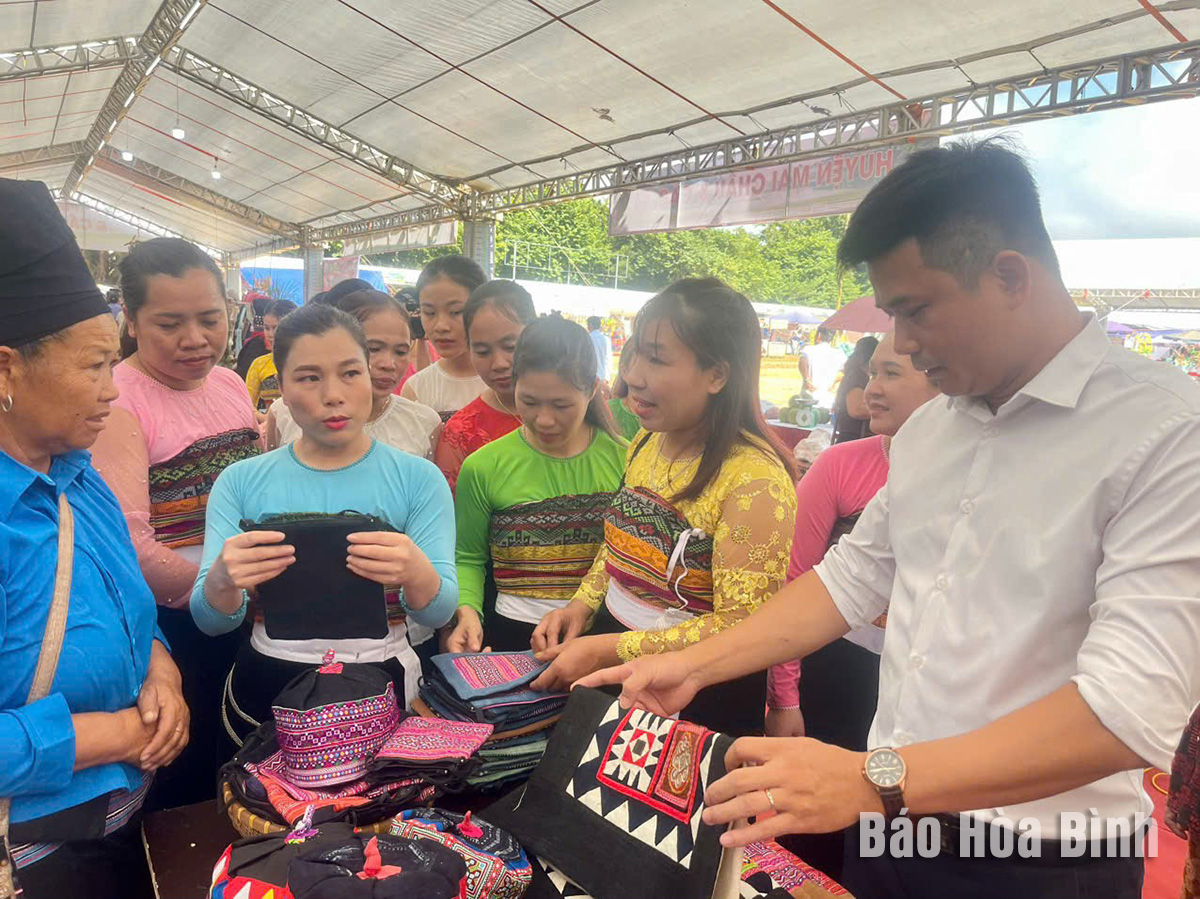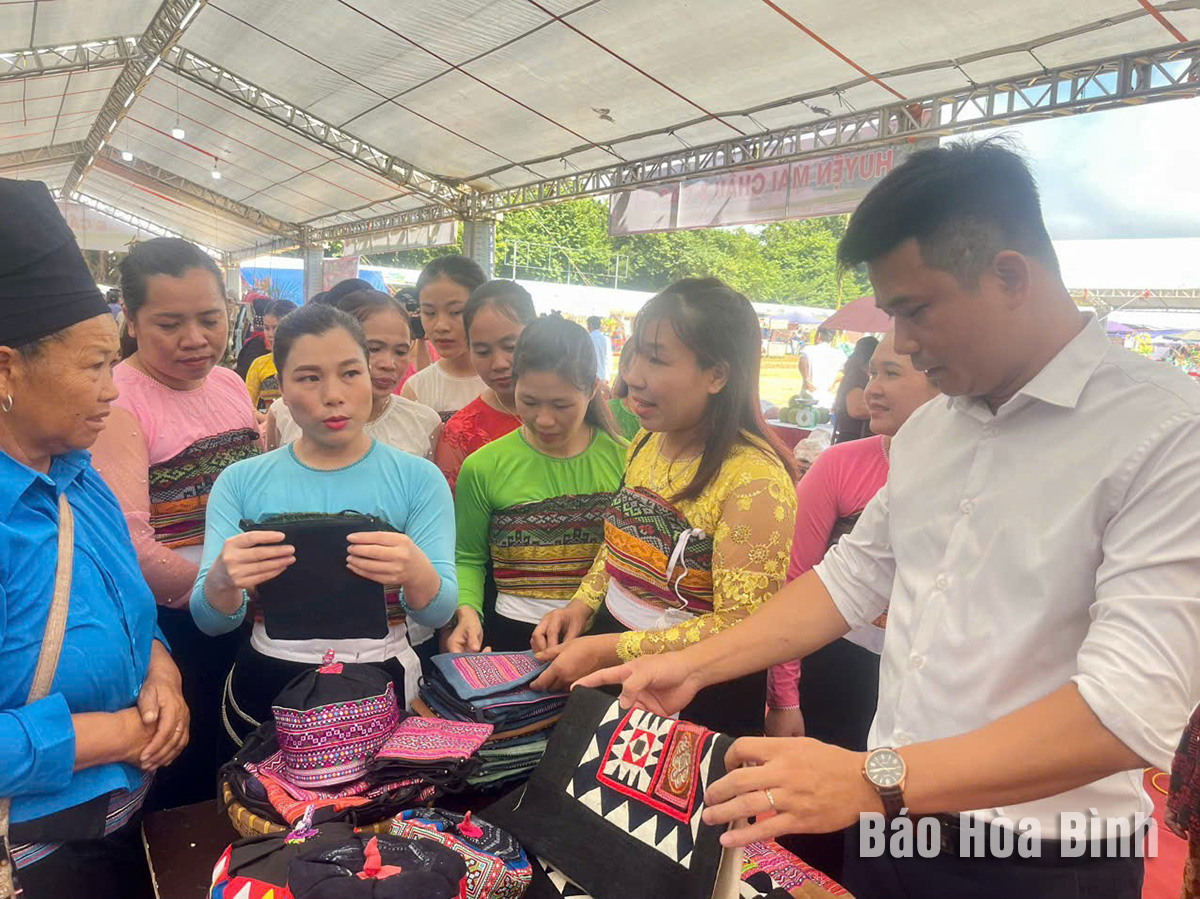
Mai Chau district, which is aiming to turn itself into a key tourism site of Hoa Binh province, has provided training courses in non-agricultural sectors for rural workers. This is a bold step to help local people shift to more suitable employment so as to improve incomes.
Trainees of
tour guide training course go on a field trip at a local market in 2023.
Ha Quynh Chi, a resident in Pom Coong village,
Mai Chau town, has joined a cooking class at the district’s centre for
vocational training and continuing education, though her household has provided
homestay service for years. After only three months, Chi is able to master
basic bartending and cooking techniques, and apply what she has learnt to
develop her family’s tourism model.
Chi is part of a larger group of rural workers
who find new ways after engaging in vocational training classes. In fact, the
courses have changed their mind, helping them see tourism as a long-term and
stable livelihood.
Ha Van Son from Nhot hamlet, Na Phon commune
said he possesses various tour guide skills, including interesting introduction
of local ethnic cultures, communication, and smooth settlement of situations,
after attending the district’s tour guide training class.
Over the past time, Mai Chau district has
arranged various courses for rural labourers, providing them with necessary
skills to develop household economy, stabilise their lives and effectively
carry out criteria to build new style rural areas.
According to Lo Van Binh, director of the
district’s centre for vocational training and continuing education, three tour
guide classes, five cooking classes and eight classes to revive the traditional
brocade weaving were organised in 2023 with financial support from the national
target programme on socio-economic development in ethnic-inhabited and
mountainous areas, the national target programme on sutainable poverty
reduction during 2021-2025, and the district’s budget.
The classes, which drew the participation of 480
people, have proved to be effective, contributing to reducing the poverty rate
to 20.79% in 2023, or 3.45% lower than the figure in 2022, he added.
Vocational training and poverty alleviation have
close relations, Binh said, highlighting that practical courses that are in
line with the society’s demand will be a key to local socio-economic growth.
The emulation movement "Hoa Binh joining hands to build new-style rural areas” has been widely spreading, becoming a driving force that motivates the localities to renew rural landscapes and improve the material and spiritual lives of the residents. In this movement, the people play a central role-both as the main implementers and direct beneficiaries of its outcomes.
In response to the global digital revolution, Hoa Binh Newspaper is transforming itself into a modern and multi-platform media hub, blending cutting-edge technology with a restructured newsroom and a new generation of tech-savvy journalists.
Hoa Binh province’s Association of the Elderly recently held a conference to review the project on expanding the inter-generation self-help club model until 2025.
In a move to implement Resolution No. 57-NQ/TW, issued on December 22, 2024 by the Politburo, which targets breakthroughs in science-technology development, innovation, and digital transformation, the Hoa Binh provincial Department of Health has issued a plan to roll out the "Digital Literacy for All” campaign within the local health sector.
An Nghia Commune (Lạc Sơn District) is one of the communes that achieved the tha standard of the national new rural area in 2018. Entering a new development phase, the commune is now trying to meet the criteria for the advanced new rural development. With the strong political will and the public consensus, the commune is gradually overcoming the challenges to reach this goal, aiming for the sustainable development.



